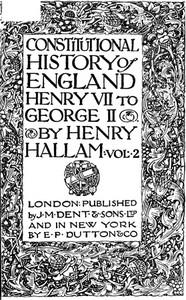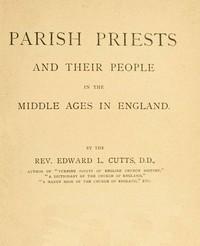|
|
Read this ebook for free! No credit card needed, absolutely nothing to pay.Words: 40719 in 14 pages
This is an ebook sharing website. You can read the uploaded ebooks for free here. No credit cards needed, nothing to pay. If you want to own a digital copy of the ebook, or want to read offline with your favorite ebook-reader, then you can choose to buy and download the ebook.

: The Pit Town Coronet: A Family Mystery Volume 1 (of 3) by Wills C J Charles James - England Juvenile fiction; Families Juvenile fiction@FreeBooksWed 07 Jun, 2023 pay off both the principal and its interest at any time, in the extremely unlikely event of his ever having the money to do so. Such was Haggard's position when he became engaged, as has been narrated, to Georgina, Squire Warrender's handsome daughter, at the end of her first and triumphant London season. It has been noted that among Georgie's numerous and most assiduous admirers had been our friend Spunyarn. He had proposed to and been rejected by Georgie, but they still remained sworn friends. The two girls, the elder of whom was but twenty, her cousin being two years younger, presented a striking contrast. Georgie was a remarkably fine girl of the true English type. Three centuries of Warrenders, a family which began as yeomen, but soon took its place in the squirearchy of its county, had transmitted to Georgie that healthy type, that sound physique and that clear complexion, which is seen only in England; and even in England, only among healthy rustics, or the women of those families of the upper class who habitually pass the greater portion of the year out of London. Not that Georgie Warrender was a mere rustic beauty, as her taper hands and tiny feet showed. It takes a good foot to look well in a walking shoe, and even in the trying walking shoe Georgie's foot was unmistakably a good one. Her clear blue eyes were honest and sympathetic; Georgie Warrender looked every one straight in the face, she had evidently nothing to conceal, nothing to be ashamed or afraid of. The two girls had been carefully educated, the "ologies" having been wisely omitted. Georgie's magnificent chestnut bronze hair was her great attraction. It is needless to say that a lock of it was in Haggard's pocket-book, and that one of Haggard's raven curls was worn in Georgie's locket. The engagement was an open one. There was no self-consciousness about either of the parties. They were both evidently proud of it. "As usual, and I suppose my own fault, though my last serious failure was certainly not my fault, but entirely due to you, Miss Warrender." "It was certainly not your lordship's misfortune," smiled the young lady. The dinner that evening at The Warren was a cheerful one; the humours of the day were described with biting satire by the gentle Lucy. She it was who had cruelly incited the stout vicar to elephantine gambols, to the intense disgust and annoyance of his angular wife. Who but Lucy could have caused the coldness between young farmer Wurzel and his affianced bride, Miss Grains, the brewer's daughter? Who but Lucy, as she sat on the shafts of the horse-roller, listening with apparently rapt attention to the lucubrations of young Wurzel on the subject of shorthorns. Perhaps the clasped hands and the ecstatic look were hardly necessary, for even so interesting a subject as stockbreeding. But Lucy had noted, out of the corner of her watchful eye, the arrival of Miss Grains, indignant and perspiring. "You'll excuse him, Miss Warrender, it's more thoughtlessness than want of manners; but he oughtn't to be taking up your time like this," cried the brewer's daughter, as she bore off her reluctant prize. To this day nothing will ever persuade the buxom mother of farmer Wurzel's fine young family that her William was not actually audacious enough to propose to Miss Lucy Warrender, and that his attentions were favourably received. So often has poor William Wurzel been twitted on this matter that he has come to look upon himself as a very Lothario, rescued at the right moment. THE VILLAGE DORCAS. The big room at King's Warren Parsonage was already fairly well filled. Old Mrs. Wurzel and the buxom but not too well-favoured heiress of the house of Grains were at the head of the table. Old Mrs. Wurzel was a personage in her way; she it was who made the annual contract with the local linen-draper; she it was who, as an adept learned in the art, officiated at the awful ceremony of "cutting-out"; she it was who, with infinite trouble, obtained for the school children those antiquated straw bonnets of a forgotten type, which were the despair of the juvenile village beauties. She herself had worn them in her youth, and they were the proper bonnets for "growing girls." But, alas! Nemesis had arrived; the head coverings worn in country places thirty years ago had become once more the fashion, and the little maids from school had been voted by Spunyarn "quite smart people." It was Mrs. Wurzel who with her own fair but energetic hands had, with her famous cutting-out scissors, shorn away the luxuriant but obnoxious fringe which Jemima Ann Blogg, the poacher's daughter, had appeared in at the Confirmation. Jemima Ann had violently resisted, but her struggles were in vain; in this case the sheep had not been dumb when in the hands of the shearer: the daughter of the village Radical had returned to her father's roof weeping, but shorn. It is true that old Mrs. Wurzel had reluctantly paid to Blogg the sum of five pounds, under the threat of a summons for assault, but the honest fellow had honourably kept her secret as he had promised, and Mrs. Wurzel's reputation, as the champion of virtue and respectability, had in no way suffered, though she had paid her five pounds for it. The vicar's wife, whose principal characteristics were her interest in missionary work and the saliency of her angles, was a mere priestess in the little circle of which old Mrs. Wurzel was the permanent archdruidess. Vicars' wives had come and gone, but all had submitted, some after a brief struggle, to old Mrs. Wurzel's sway. But Mrs. Dodd, the present vicar's wife, retained the precious prerogative of choosing the book to be read at the monthly Dorcas. Mrs. Dodd's choice was invariably the biography of some missionary; and she did her best to carry out the idea that a Dorcas meeting should provide self-mortification for the ladies present, in the shape of coarse work for the fingers and repellent reading for the mind. The village Dorcas was that happy neutral ground where the various ranks of society met on an equality. Here might be seen the three good-looking and well-educated daughters of the local draper. Nice girls these, but under the baleful shadow, the bitter blight of trade. For country places are very conservative: the squire looks down on the yeoman, the doctor and the lawyer, all three of whom consider themselves considerably taller in social stature than the tenant farmer, who in his turn will eat no bread and drink no water in the houses of those Rechabites, the tradesmen. All these people, however, join in despising the rich stockbroker who has recently purchased the pretentious place which he calls "The Park;" the gates of which are almost celestial, being of bright gilded iron work. The unfortunate inhabitant of "The Park," notwithstanding his well-appointed barouche and his men in livery, is but a pariah. For not a year ago, till the big corner occurred in Mex. Rails in which he made his pile, little Sleek, of Sleek and Dabbler, of Throgmorton Street, had "been to business" every morning. Sleek now passes his time in good works, he takes a great interest in local affairs, and, unless he flings the whole matter up in a rage, he may yet become a justice of the peace. Sleek finds it far harder work than fortune-making; but he pursues his Will-o'-the-Wisp with untiring energy. So do we all. It is for this, that Sleek contributes so liberally to the local charities. It is for this, that the two Misses Sleek, clad in shining raiment of needlework, are seated at the big table, pursuing the unromantic occupation of hemming huckaback towels of a more than Spartan coarseness. But something has been already gained by the monthly martyrdom; Mrs. Dodd and her sister-in-law the ethereal Anastatia address them as "dear," and they have a bowing acquaintance, which they energetically attempt to increase, with, the Misses Warrender. Within this charmed circle the veterinary surgeon's womankind and the grocer's daughters also dare to tread, but they are there merely on sufferance. The line must be drawn somewhere, and the vicar's wife, as did her predecessor, drew it at that man of blood, the harmless Kubble, the local butcher. He and the rest of those shut out from Paradise sought their enjoyment, and a perhaps more congenial society, at those buttery banquets, the tea meetings of the local Little Bethel. Thus, as in most country places, Dissent was at a premium among the humbler classes, and possibly the continued assertion of their position by the clergy of the State has had a good deal to do with the spread of Dissent in other villages than King's Warren. There were at least a dozen ladies seated round the big table at the Parsonage. Our friends Lucy and Georgina were among the number, their simple muslins strikingly contrasting with the more elaborate garments of the Misses Sleek. Anastatia Dodd fluttered round the workers, as they plied their busy needles; she "gave out" the various garments, or portions thereof, of mysterious shape; and as she did so whispered her little word of welcome, her little chirrup of harmless gossip to each. Mrs. Dodd who sat at the bottom of the table as vice-chairmaness, now opened a thick black book in which various markers of coloured paper had been inserted. "I think we are all here," she said, as she put on her spectacles in a determined manner, and ominously cleared her throat. Nobody disputed this proposition; the hum of conversation ceased. Free books android app tbrJar TBR JAR Read Free books online gutenberg More posts by @FreeBooks
: The World Before Them: A Novel. Volume 1 (of 3) by Moodie Susanna - Fiction@FreeBooksWed 07 Jun, 2023

: Eli and Sibyl Jones Their Life and Work by Jones Rufus M Rufus Matthew - Liberia Description and travel; Quakers Biography; Missionaries Biography; Jones Eli 1807-1890; Jones Sybil 1808-1873@FreeBooksWed 07 Jun, 2023
|
Terms of Use Stock Market News! © gutenberg.org.in2025 All Rights reserved.






